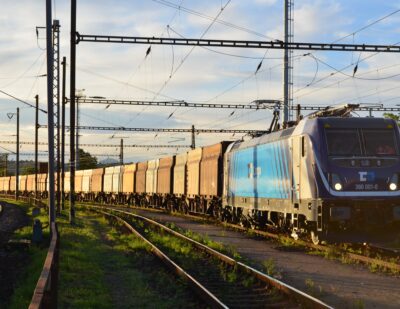On the 27th of November 2020, deputy transport minister Dikeledi Magadzi said that the government should not ignore the rail sector in its efforts to rebuild South Africa’s economy. She said the sector has the potential to create much-needed economic opportunities by opening access to markets by linking South Africa’s coastal areas “to the trade routes of the world”.
When he released the country’s recovery plan during a joint sitting of Parliament recently, President Cyril Ramaphosa said that if South Africa is to adopt the right localisation policy at a larger scale, about 3.2 percentage points could be added to the country’s annual GDP. This policy would include manufacturing 10 percent of goods locally, as well as supplying 2 percent of goods that African countries buy from outside the continent. Given South Africa’s heavy reliance on imported goods (about R1.1 trillion each year), the time has come to focus on locally manufactured goods, the production of which results in job creation, skills development, and the rejuvenation of communities and the national economy.
More than just buying local, however, it’s also time to increase our exports to the rest of the continent, and indeed the world, opening new revenue streams and building opportunities for home-grown businesses to thrive. In doing so, we can ensure that local suppliers are supported, and skills, knowledge, and expertise are transferred — particularly to our youth, creating opportunities for work but also providing an experience that can benefit them over the short and long term.
Rail transportation is the catalyst that can make that happen. It is a precarious time for road freight operators at the moment, and with approximately 90 percent of the country’s freight currently moved by road, the risk for distributors is high. The opportunity is there to move goods more quickly, and more safely, and over great distances via rail, which has the ability to keep South Africa moving.
Committed to local job creation and skills transfer
Keeping it local is something that Bombardier has focused on since opening its South African office back in 1995. As a strong, local employer, we are fully committed to uplifting South Africa, contributing to her growth through job creation and skills transfer.
Our success is the result of the hard work, dedication, and investment made by our more than 200 local partners, and our own employees, who enable us to continue to produce world-class locomotives in South Africa, for South Africa. We are proud that our BOMBARDIER TRAXX Africa locomotive fleet — which has just completed ten million kilometres in service — was locally manufactured from the very first unit, and has to date, created 300 direct, and 1800 indirect jobs. Our ongoing local production reflects Bombardier’s commitment to the country’s impressive rail modernization plan. We are also a long-standing partner of Gautrain as the supplier of its commuter trains and signaling systems and have the contract to maintain the Gautrain fleet until 2026.
Driving South Africa’s economic revival
Bombardier is committed to playing our part in helping Africa get back on her feet. Our aim is to continue to move more people and goods safely and reliably across South Africa, and to create new jobs, build a strong and local supply chain, and help to revive South Africa’s economy, by building locally and exporting rail products to the rest of the African continent.

